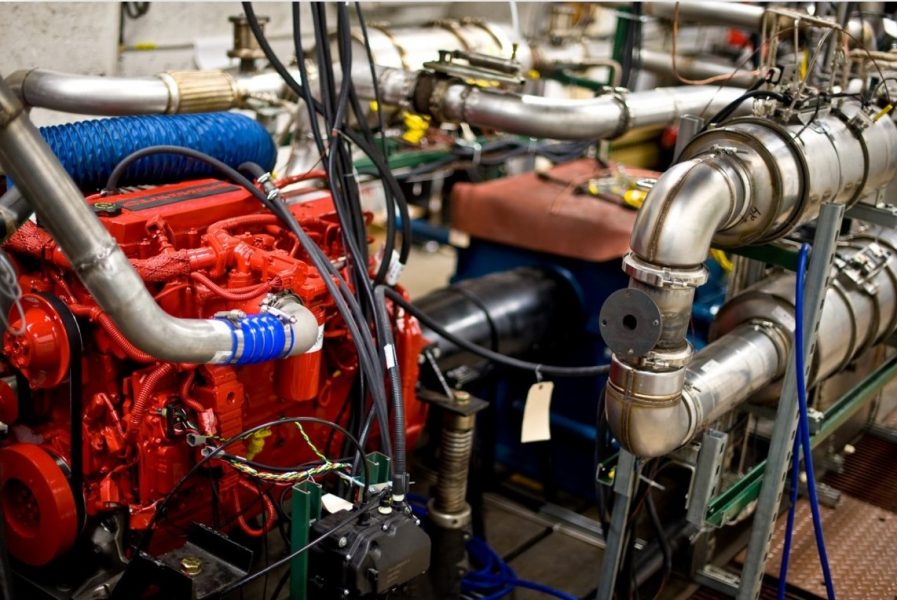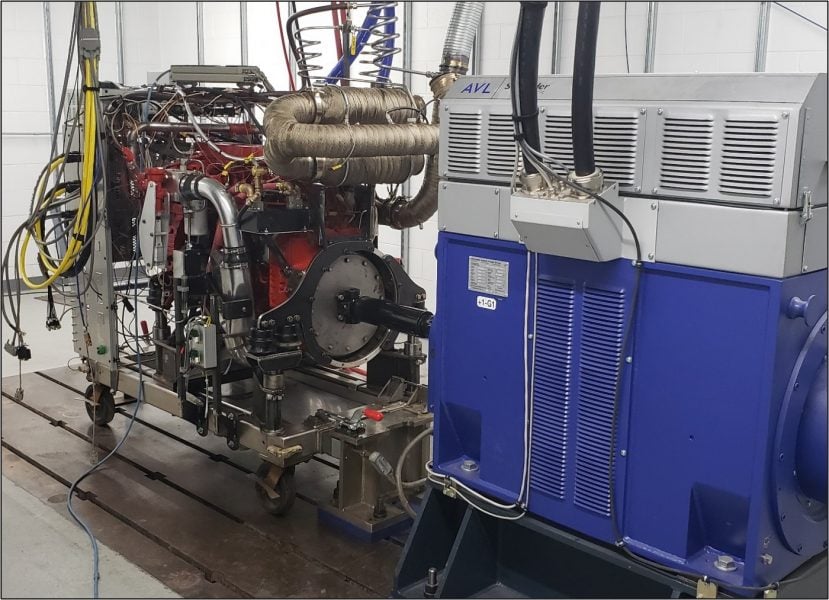Diesel engines play a significant role in Automotive, Off-Highway, and Industrial
applications, and they continue to evolve with increasingly stringent emissions
and fuel economy standards. Understanding their operation and control are
critical skills that are in high demand.
Driving the American Economy
Despite the automotive industry’s increasing investment in battery electric vehicles (BEVs) and the public’s demand for them, there is a still a need for diesel engines. Why? These engines are still found in light-duty vehicles, medium and heavy-duty trucks and in commercial vehicles (trains, trucks, buses, barges, and boats). The US military, in fact, uses diesel in nearly all of its ground vehicles because this fuel is less flammable and has a high energy density. And, of course, many industrial facilities (not to mention remote towns) rely on diesel engine generators as their backup or even primary sources of electricity.
Most obviously, diesel engines power the vehicles that transport the plethora of products we consume. They also keep farming, construction, and mining equipment moving. In short, diesel fuel has been and will remain important to the American economy. So engineers must continue to learn not only how diesel engines work but also how to improve them.

Diesel Fast Facts
- Even though other car sales plummeted, sales of diesel SUVs and trucks grew by 28% in 2020
- 28%: the market share of diesel in the fourth quarter of 2021
- Diesel fuel contains 10-15% more energy than the comparable amount of gasoline
Improving Diesel Engines
Compared to other types of internal combustion engines (ICEs), in fact, diesel engines have superior durability and efficiency. That is, by some estimates, diesel engines are anywhere from 20-35% more economic and cost-effective than gasoline engines. To put this fact in perspective, if a gasoline engine gets 40 mpg, its diesel equivalent would get you 48 to 54 mpg. For huge vehicles, these numbers certainly matter.
And thankfully, diesel fuel has also come a long way. Prior to 2006, most US diesel fuel had high qualities of sulfur. Currently, most of this fuel sold in the US qualifies as ULSD (ultra-low sulfur density), which means it has 15 sulfur parts per million. And then there is the diesel fuel made from both petroleum and biomass sources.
But diesel fuel, because it is often expended in large amounts, still produces emissions. And when it comes to climate change, reducing carbon emissions requires an all-hands-on-deck approach. This approach will involve improving all power systems, such as striving to make even cleaner, more efficient diesel engines.
Without the low operating costs, high efficiency, high reliability, and great durability of diesel engines, it would have been impossible to reach the extent of globalization that now defines the modern economy.
Teaching Fundamental Diesel Skills
Recognizing the ongoing importance of diesel engines is Michigan Tech’s Advanced Power Systems (APS) LABS. The expert instructional team from MTU’s acclaimed multidisciplinary research center comprises Dr. Jeffrey Naber, Dr. Jeremy Work, Dr. Vinicius Bonfochi Vinhaes, and Grant Ovist. Together, they are teaching two condensed courses on diesel engines. These 20-hour (2.5 day courses) come in two modalities to suit the diverse needs of learners. That is, students may take the F2F version, or they may study from home in the Live/Online Version.
Both courses, which focus on diesel engines, are suitable for those interested in pursuing careers in the automotive industry, commercial vehicles, power generation, or related fields.
MEEM 5202 (Diesel Engine Fundamentals)
This non-credit course is ideal for those who want to gain foundational knowledge in diesel engines. It runs from Wednesday, May 31, 2023 to Friday, June 2, 2023.
MEEM 5204 (Diesel Engine Management Systems, Emissions, and Aftertreatment)
This non-credit course equips students with a deeper understanding of diesel engine management systems, emissions, and aftertreatment. It runs from Wednesday, June 28, 2023 to Friday, June 30, 2023.
Visit the Global Campus page for APS LABS to see more details about these courses.
Promoting Professional Development
Michigan Tech Global Campus is proud to partner with and support APS LABS in promoting their professional learning short courses. We understand the importance of offering non-credit continuing education that meets the ever-evolving needs of learners.
Whether it is professional development, professional learning, short online courses, bridge courses, or specialized corporate training, Global Campus wants to help in providing continuing education that is practical, flexible, and accessible.
Stay tuned for other learning opportunities that offer practical skills and competencies for keeping pace with technology and upskilling your career.
